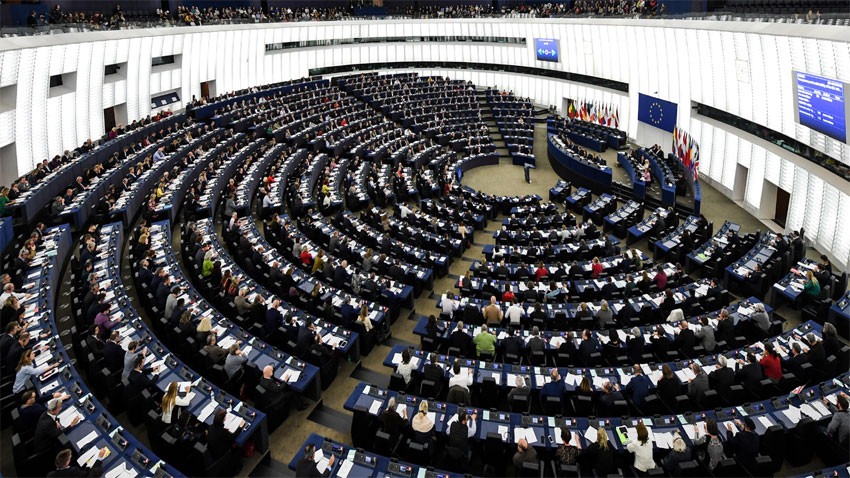
On 11 December the European Parliament approved, by an overwhelming majority - 514 “for”, 107 “against” and 38 “abstained” – a resolution for the accession of Bulgaria and Romania to Schengen. This is, in fact, the fifth such European Parliament call in quite a number of years.
As previously, the MEPs acknowledge the fact that the two countries have met the technical criteria for entry into the Schengen area. Unlike before, the overwhelming majority in the EP thinks that the phasing out of border control – first checks at internal sea and air borders, then checks along internal land borders – is unacceptable because it entails a number of risks and could have a negative impact on the future enlargement of the Schengen area. According to the MEPs, the protracted deferral of the full accession of Bulgaria and Romania to the Schengen area has already had an adverse effect on the two countries, but also on the EU as a whole.
Yet there was no representative of the EU Council present at the debates in the European Parliament, even though the enlargement of the Schengen area is up to that particular body. It is a decision the Council can only make by consensus, and the results of the vote of the resolution show there is no consensus within the EP either. As dramatic events unfold surrounding Brexit, the enlargement of the Schengen area is not a hot item on the EU’s agenda by far. And it is highly unlikely this will happen now that the term of office of the current European Commission, and of most other European institutions, is drawing to an end. In this sense, the debates at the European Parliament on enlarging the Schengen area with Bulgaria and Romania should probably be regarded more as an element of the European Parliament elections campaign. The fact that the EP draft resolution was authored by the President of the Party of European Socialists Sergei Stanishev is suggestive of just such a thing; his comments of GERB’s coalition government have been critical, GERB being from the European People’s Party.
It is probably for all of these reasons that this latest, fifth call by the European Parliament for Bulgaria to be admitted to Schengen is getting a cool reception in Sofia. There is no reaction, as yet, on the Foreign Ministry’s website to yesterday’s events in Strasbourg, and in one of her last comments on the matter, in answer to a journalist’s question in June this year, Foreign Minister Ekaterina Zaharieva says that “in practice, the Schengen area is not working, it hasn’t been working for several years. It is our position that we should protect our external borders, and not wall ourselves up inside.”
Obviously, the Bulgarian government is not expecting the Bulgaria-in-Schengen predicament to be unraveled any time soon, as things now stand that seems most unlikely.
English: Milena Daynova
''If the Constitution is not amended, there is no point in holding another election under the same rules and with the same bought, controlled and corporate vote'', the co-chairman of the parliamentary group of BSP-United Left Borislav Gutsanov said in..
The first sitting of the newly elected National Assembly has ended. As in the last three Bulgarian parliaments, the election of a speaker proved to be a serious challenge, as neither of the two candidates - Raya Nazarian of GERB-SDS and Andrei Tsekov of..
The residents of the Bulgarian-populated region of Taraclia and the Gagauz Autonomous Area in the Republic of Moldova voted over 90% "no" in the October 20, 2024, referendum, where Moldovan citizens were asked if they approved Constitutional amendments..

+359 2 9336 661
